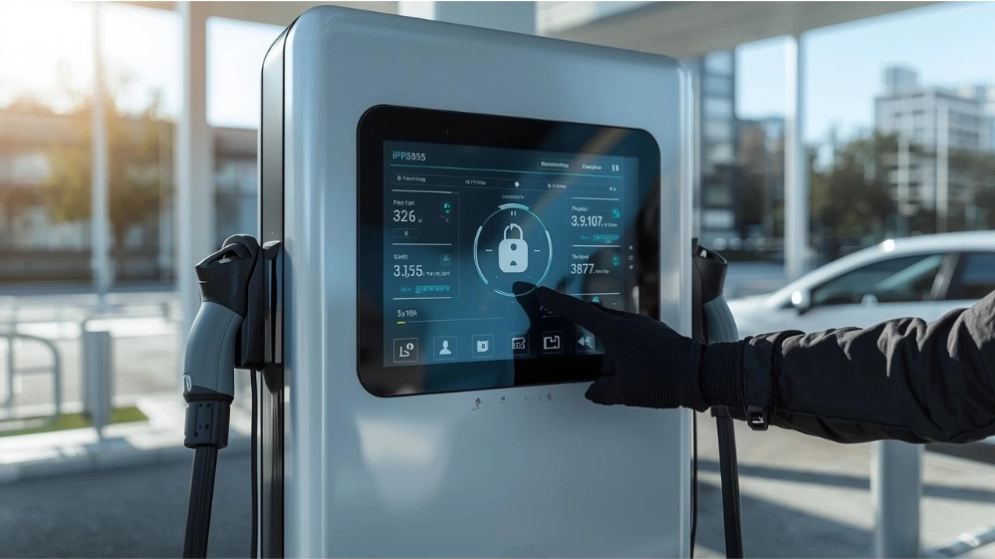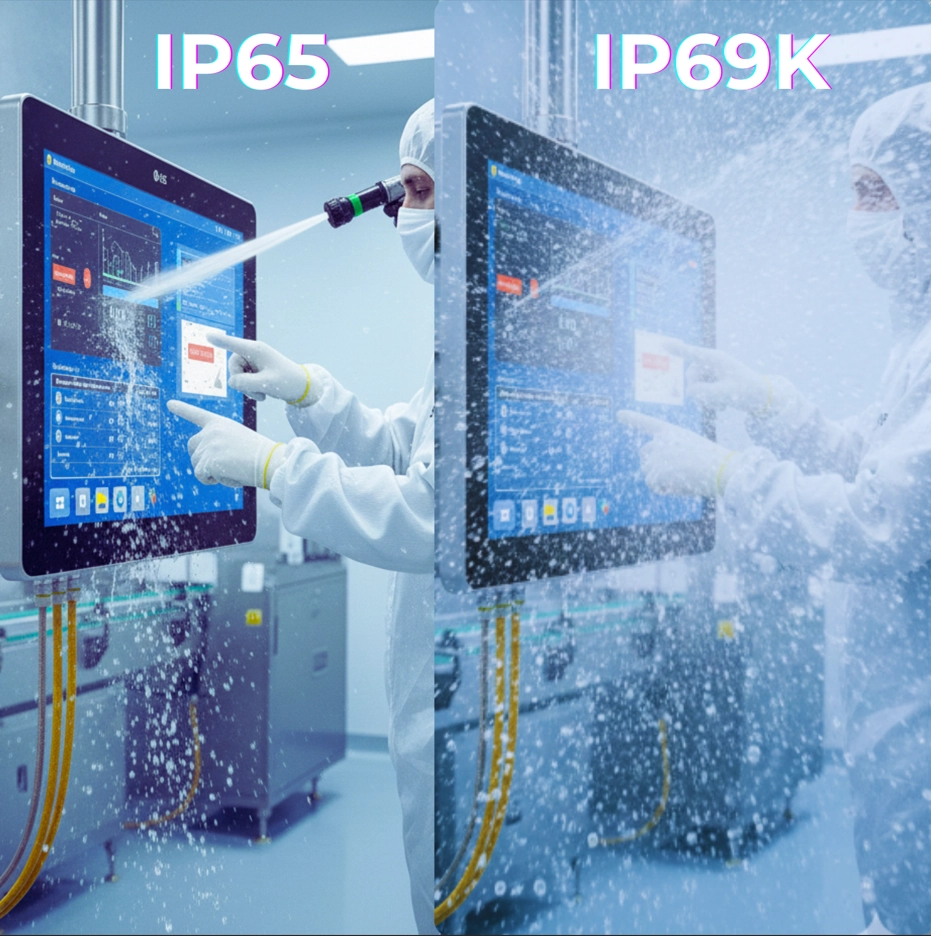Usage Scenarios and Challenges for EV Charging Station Manufacturers
As the global electric vehicle (EV) market expands rapidly, the deployment of charging infrastructure is accelerating. Charging station manufacturers must not only meet the growing demand for installations but also address harsh outdoor environmental conditions and ensure user-friendly operation. This section outlines the three primary application scenarios and challenges currently faced by EV charging station manufacturers.
EV Adoption Driving Demand for Smart Charging Station Equipment
According to forecasts from the International Energy Agency (IEA), the global EV fleet will exceed 200 million units by 2030. This growth trend is fueling the demand for smart charging stations, including requirements and specifications in the following areas:
| Item | Description |
|---|---|
| Equipment User Interface | Must feature intuitive touchscreen operation, support multiple languages, multimedia display |
| Display Equipment Specs | Must ensure high brightness, outdoor visibility, waterproof and vandal-resistant design |
| System Integration Requirements | Must integrate payment modules, network connectivity, and remote monitoring capabilities |
Technical Challenges of Outdoor Installation and 24/7 Operation
Many EV charging stations are located outdoors, requiring equipment to endure prolonged exposure to rain, sunlight, and dust. Standard commercial displays or tablets cannot withstand these conditions; instead, industrial-grade devices with the following characteristics are required:
- IP65 protection rating: Waterproof and dustproof to prevent rain and debris ingress
- Wide operating temperature range: Suitable for extreme climates from –20 °C to 80 °C
- High-brightness design (>1000 nits): Ensures clarity under strong sunlight
Importance of User Interaction and Human–Machine Interface (HMI)
EV charging station users come from diverse age groups and varying levels of technological literacy. Therefore, the interface must be intuitive, clear, and responsive. In commercial or public charging installations, the first-time user experience directly impacts brand perception:
| HMI Optimization Factor | Description |
|---|---|
| Touchscreen Sensitivity | Should support finger and gloved operation, avoiding delayed or failed responses |
| Display Clarity and Contrast | Should be legible even in direct sunlight |
| Operation Flow Design | Enable completion in 1–3 steps to avoid excessive clicks and errors |
Why Choose High-Brightness Touchscreens?
For equipment like EV chargers, which are installed outdoors and operate continuously, screen visibility and usability directly influence user experience and operational efficiency. This section explains the technical foundation and practical benefits of high-brightness touchscreens.
Overview of High-Brightness (Sunlight Readable) Technology
High-brightness displays offer 1000 nits or greater luminance, ensuring clear visibility under sunlight. The core technologies include:
| Item | Explanation |
|---|---|
| Backlight Enhancement | Boosts LED backlighting to maintain clarity under direct sunlight |
| Anti-glare Coating | Reduces reflective glare, improving contrast and reading clarity |
| Optical Bonding | Eliminates air gaps to reduce reflection and improve light transmittance and screen uniformity |
Ensuring Visibility in Bright and Outdoor Conditions
Commercial tablets typically offer only 250–400 nits, insufficient for outdoor use. Industrial high-brightness touchscreens are specifically designed for outdoor environments, offering advantages such as:
- 1000–1500 nits brightness: Clear visibility of information and instructions
- Anti-reflective treatment: Enhances contrast and readability
- Stable brightness maintenance: Ensures consistent performance over extended use
These features significantly reduce usage hurdles, enhancing overall equipment availability and customer satisfaction.
Enhancing Operational Efficiency and User Experience via High-Brightness Displays
Selecting the right touchscreen can greatly improve EV charging station operations and brand image:
| Benefit | Description |
|---|---|
| Improved Operational Efficiency | Users can complete charging steps swiftly without repeated attempts |
| Enhanced Brand Image | Clear, easy-to-use screens convey professionalism and build brand trust |
| Reduced Maintenance Cost | Long-lasting, anti-aging screens minimize replacements and post-sale issues |
Key Features of Industrial-Grade Touch Displays
In the demanding environment of EV charging stations, display reliability and longevity are just as vital as brightness. Industrial-grade touch displays embody multiple design features tailored for harsh conditions and continuous use.
Waterproofness, Dustproofness, and Security (IP65+)
Outdoor EV charging stations are susceptible to rain, dust, and vandalism. Industrial displays offer the following protective features:
| Protection | Description |
|---|---|
| IP65 / IP66 Rating | Splash and dust protection, suitable for outdoor and 24/7 installation |
| Reinforced Glass | Impact and scratch-resistant, extending operational lifespan |
| Anti-vandal Design | Metal housing and secured screws prevent tampering and theft |
Wide-Temperature Operation and Glove-Compatible Touch
EV charging equipment must adapt to varying climates and operational conditions, requiring:
- Wide-temperature operation: –20 °C to 70 °C, accommodating extreme cold and heat
- Capacitive touch with glove support: Allows users and maintenance personnel to operate without removing gloves
- Rain-resistant touch optimization: Ensures reliable response even when wet
These capabilities ensure stable, year-round, high-frequency usage.
Reliable Supply and Extended Device Lifespan
Industrial applications demand long-term stability and ease of maintenance, which is especially critical for EV charging station manufacturers:
| Feature | Explanation |
|---|---|
| Long Product Lifecycle | Uses industrial components to avoid frequent redesigns or discontinuations |
| Stable Supply Chain | Offers 3–5 years of guaranteed supply, aiding in manufacturing and repairs |
| Long-Life LED Backlight | Maintains brightness over time, reducing aging and brightness drop issues |
Integrated Application Scenarios and Use Cases for EV Charging Stations
With the rise of smart cities and green infrastructure, EV charging stations increasingly function as information, HMI, payment, and remote-management hubs. Industrial high-brightness touchscreens play a critical role in these complex applications.
Smart Screens Integrating Payment and Monitoring Systems
Modern charging stations integrate interaction and safety technologies. High-brightness touchscreens serve as the bridge between users and systems, enabling:
| Integration | Function |
|---|---|
| Payment Systems | QR-code scanners or contactless card modules for cashless transactions |
| Surveillance Display | Displays real-time monitoring or alerts for enhanced security |
| Usage History Display | Shows energy usage, payment info, and user records |
These integrations enable charging stations to offer comprehensive services and robust backend management.
HMI Layouts for Outdoor Self-Service Charging Stations
Self-service chargers—found in malls, parking lots, street sides, or service areas—need intuitive interfaces and reliable outdoor usability:
- High‑brightness screens ensure clear instructions even under strong sunlight
- Simplified operational flows reduce menu complexity and increase charging success rate
- Multilingual support is ideal for tourist areas, airports, or international cities
IoT and Cloud Integration Trends
As EV charging station numbers grow rapidly, centralized management platforms become key. Touchscreens as front-end interfaces are increasingly crucial:
| Technology Integration | Practical Usage |
|---|---|
| IoT Modules | Report equipment status, power data, and fault alerts |
| Cloud Management Platform | Updates interface remotely and monitors station operations |
| OTA Firmware & UI Updates | Enable on-screen updates without onsite disassembly or service visits |
Such integrations enhance charging station intelligence, reducing labor costs and improving maintenance efficiency.
Frequently Asked Questions (FAQ)
During planning or deployment of EV charging station equipment, customers often inquire about touchscreen durability, power consumption, and operational reliability. Here are the three most frequently asked questions with answers:
Do High-Brightness Screens Consume a Lot of Power? How Long Do They Last?
Q: Given the high brightness, won’t these displays be power-hungry and have a short lifespan?
A: Industrial high-brightness screens use energy-efficient LED backlight technology. While brightness ranges from 1000 to 1500 nits, power consumption remains well-controlled. High-quality panels can achieve 50,000–70,000 hours of backlight life—running 16 hours daily translates to over 8 years of stable use.
Can the Touchscreen Be Operated in the Rain?
Q: What happens if the charger gets wet? Can users still operate the touchscreen?
A: Yes. Capacitive touchscreens with optimized design for wet or rainy conditions can operate reliably even when slightly wet. They also support gloved use and resist accidental inputs from water droplets, ensuring accurate operation. With IP65+ mechanical design, the screens withstand outdoor environmental challenges.
What Should I Look for When Choosing an EV Charging-Station Display Screen?
Q: How do I choose an industrial touchscreen suitable for EV charging applications?
A: Consider the following key specifications:
| Evaluation Factor | Recommended Specification / Reason |
|---|---|
| Screen Brightness | ≥1000 nits — ensures outdoor visibility even under direct sunlight |
| Waterproof & Dustproof Rating | IP65 / IP66 — suitable for outdoor installation requirements |
| Operational Environment Adaptability | Support –20 °C to 80 °C operation, gloved and wet-hand touch support |
| Lifespan & Supply Stability | Industrial-grade components and consistent supply avoid frequent maintenance and obsolescence |
About Beyond Info System and Product Recommendations
Choosing a reliable industrial computer and touchscreen supplier—one with experience, steady supply, and technical strength—is critical for building long-term operational systems in EV charging. Beyond Info System is such a trustworthy partner.
About Beyond Info System (www.beyondinfosys.com)
Beyond Info System specializes in industrial touch panel computers, embedded systems, high‑brightness displays, and military-grade solutions, with applications spanning smart transportation, energy management, smart manufacturing, and public infrastructure. Our product designs emphasize:
- Industrial‑grade durability
- Customizable I/O and appearance & Small MOQ
- Long-term stable supply and technical support
- Compliance with international quality and safety standards
High-Brightness Industrial Touch Panel Computers for EV Charging Stations
For EV charging applications, Beyond Info System offers several touchscreen and display solutions that combine high brightness, IP protection, and outdoor usability:
| Product Name | Key Features |
|---|---|
| Panel Mount High Brightness 7″ Touch Monitor | 7″ high‑brightness (1200 nits), IP65‑rated front panel, Light sensor built-in for auto-dimming, Optical bonding, Anti-UV glass, Metal housing |
| Panel Mount High Brightness 10″ Touch Monitor | 10.1″ capacitive touch, glove‑compatible operation, sunlight-readable design, Light sensor built-in for auto-dimming, Optical bonding, Anti-UV glass, Metal housing |
For any inquiry and questions, please contact us.


